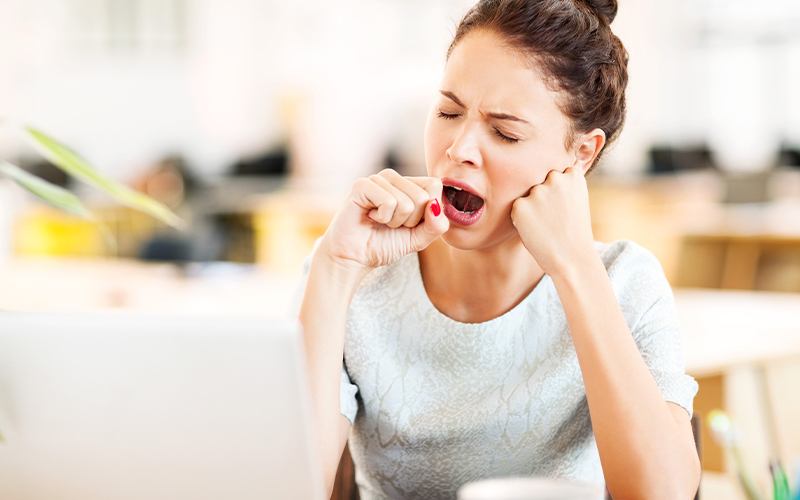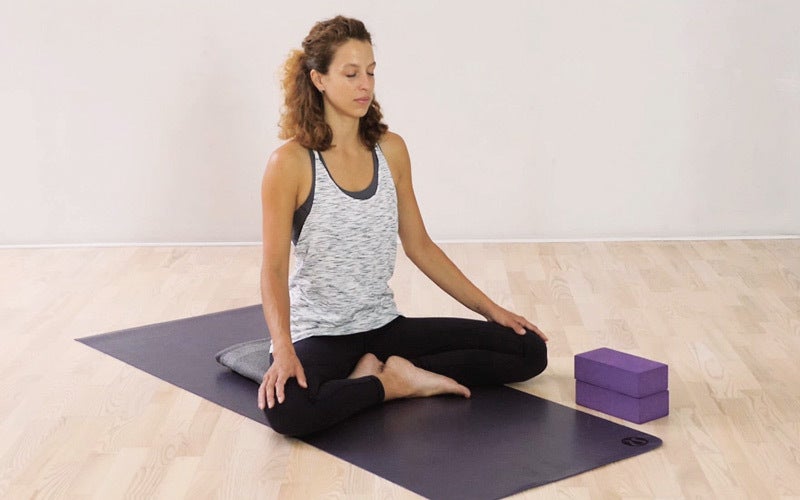How to sleep well: 8 tips for a good night’s sleep!
 JGI Jamie Grill
JGI Jamie Grill
Do you find yourself feeling tired even if you’ve clocked a full eight hours of sleep? There are a lot of factors that determine whether or not you get a night of sleep that actually makes you feel rested, from what you eat for dinner to how much caffeine you’ve had during the day. Here, we give you some ideas on how to sleep well: these will ensure you wake up feeling refreshed so you can always start the day off on the right foot!
What is restful sleep?
Your sleeping and waking phases take place over a 24-hour cycle. Many important processes in our body function in this rhythm, including sleep.
Melatonin is a hormone that your body produces to let you know when you’re tired. In general, your body produces more of it when it’s dark outside, and starts producing about two hours before your usual sleep time. As you sleep, it gradually breaks down.
That’s part of the reason why you might feel tired and unmotivated in winter. After all, because it’s darker your melatonin production is far more active than in the summer.

Other factors can also disrupt melatonin production.
For example, an all-nighter is an experience that most of us have had to endure for one reason or another (studying for exams, jet lag, etc.). But disrupting your sleep cycle for even one night can have consequences on the way you sleep for days afterward.
What happens in your body when you pull an all-nighter is that your body’s natural rhythm (or internal clock) is disturbed. The disruption in the rhythm causes your body to lose track of when and when not to produce melatonin, which may leave you tired – or wide awake – at the wrong time of day, or night. Even if you get plenty of rest for the few days after, you may still find that you have problems concentrating while your body readjusts to its normal cycle.
How long do you need to sleep?
While you’ve probably been told that you need eight hours of sleep for most of your life, today’s research shows that seven hours is a better amount of time for a lot of people.
Of course, just because that’s what’s recommended doesn’t necessarily mean it will suit your needs. Some people naturally need more sleep while others need less, and just like diets or routines, everyone has to figure out what good sleep looks like for them.
However, one thing is certain for everyone: It’s absolutely essential to get enough sleep to activate the regeneration process in our bodies. If you don’t get enough regular rest, it can have consequences on your long-term health.
We know what it is to not get enough rest, but did you know that you can also get too much sleep? To find out more about how much sleep you need, check out this article.
If you have sleep problems, use our eight simple tips to sleep better ASAP.
Our 8 Tips for Getting Better Sleep
#1 Less light makes more sleep
Though this probably goes without saying, avoid trying to sleep anywhere that’s too bright. It’s especially important to avoid blue light exposure from screens because research shows it can have negative impacts on your cycle and affect your ability to fall asleep.
All forms of light can delay the production of melatonin — not just sunlight! That’s why it’s best not to expose your eyes to too much light before you go to sleep, especially blue light from smartphones, tablets, and other screens.
Light signals to your body that it’s time to be awake, and too much of it can shift your cycle and leave you feeling tired the next day.
#2 Keep your bedroom at just the right temperature.
Though you may feel like goldilocks while setting the temperature for your bedroom, it’s absolutely essential that where you’re sleeping be neither too hot nor cold. Somewhere between 18 and 21°C is ideal for a restful sleep.
That’s because your body temperature also influences your internal clock. It drops to its lowest level while you sleep and rises again when you wake up, but if external forces are making you too hot or cold, it will affect the quality of sleep you get and you may not wake up feeling rested.
#3 Some people should avoid exercising in the evening.
Although we advise that you exercise as often as possible, it’s not ideal for everyone to do it before bed. That’s because your body temperature changes and your body produces endorphins and dopamine, all of which can affect the quality of sleep you get.
In general, no one should exercise right before they plan to go to sleep because your body will be too energized to actually even do it. But some people swear by working out in the evening, because they say it improves the way they sleep when they do finally get into bed. On the other hand, many others say that all those extra hormones make it impossible for them to fall asleep at night.
If you want to do something good for your body before you go to bed, consider doing a low intensity stretching exercise that will relax you more than it will work you out. A short yoga or meditation session, for example, can often be all you need to drift off.

#4 Drink less caffeine during the day
After a certain hour, you should put the coffee down if you don’t want to worry about being able to fall asleep at night. Caffeine has been shown to delay the production of melatonin and can prevent you from falling asleep. And the longer it takes to get some shut-eye, the more tired you’ll be the next day.
#5 Create an evening ritual for yourself.
After a long day of work, it’s important to take the time you need to decompress. Leave your day behind and forget about any chores or tasks you still have to do.
If you find it hard to turn off your brain, try writing down three things you’ve accomplished during the day and what you still need to do. It’ll help you feel organized and proud of all that you’ve already done so that you can hit the hay in peace.
#6 Go to bed and wake up at the same time every day.
Your body needs a regular routine to ensure that you’re getting restful sleep every night. Any small hiccup in that routine, whether it be a late night or too much alcohol, can mess up how you sleep for days or even weeks after. The best way to maintain your routine, however, is to go to bed and wake up at the same time every day. If you get into the habit of doing this it’ll ensure your sleep routine remains regular and you’ll find that your sleep quality improves and that you need your alarm clock to wake you up less and less.
On that note, did you know that a lot of people unconsciously associate waking up with stress? Changing the ringtone of your alarm clock from time to time can prevent this from happening.
#7 Avoid drinking anything before bed.
Stop drinking (not just alcohol) 1 to 2 hours before going to bed. This will prevent you from waking up in the night to pee, which happens to be one of the most common sleep disturbances.
When it comes to alcohol, drinking any at all can seriously interfere with your sleep. When you pass out from drinking too much you’re falling into only a superficial sleep. That’s because alcohol reduces the amount of rapid eye movement (or REM) sleep, which is the restorative phase of sleep that helps your muscles regenerate and keeps you feeling rested. Plus, alcohol also causes you to wake up during the night, sometimes more than once, which can cause your sleep cycle to become irregular.
#8 Make sure you’re not eating too close to bedtime.
Eating a lot right before bed can make sleeping difficult. The more work your stomach has to do to digest, the less rest the rest of your body will get. Try to eat dinner a few hours before you plan to go to bed so that your body has time to digest beforehand. And if you must have a late night snack (we’ve all been there) eat something that will be easy on your stomach.

Our conclusion
- The rhythm of your sleeping and waking phases is a 24-hour cycle.
- Sleep quality can vary from person to person because of a lot of different factors.
- Melatonin is what makes you feel tired.
- Before going to bed, it is best to avoid light, drinks, intensive exercise, and heavy meals. This will allow you to get enough shut-eye and wake up feeling rested.
Sources for this article
We at foodspring use only high-quality sources, including peer-reviewed studies, to support the facts within our articles. Read our editorial policy to learn more about how we fact-check and keep our content accurate, reliable, and trustworthy.


































